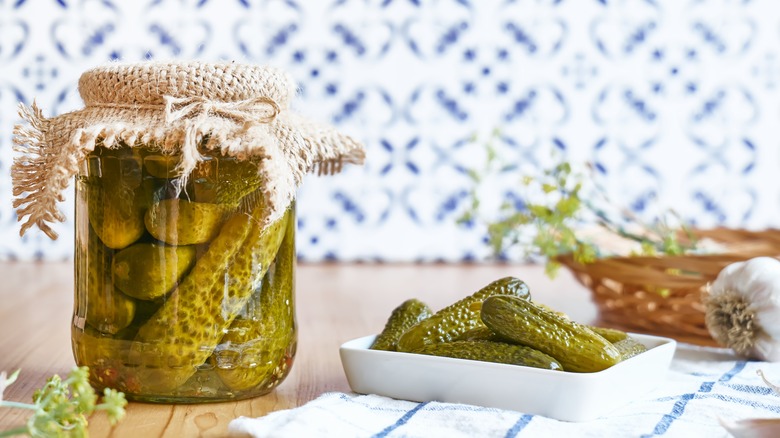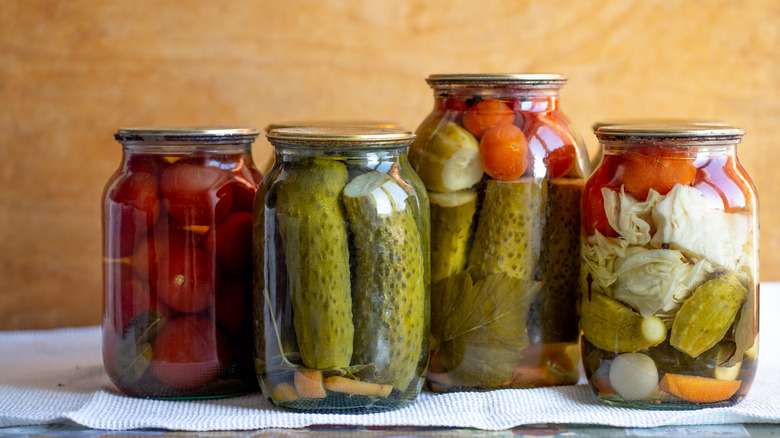The Real Difference Between Gherkins And Cornichons
We may receive a commission on purchases made from links.
Simply put, all gherkins are pickles, but not all pickles are gherkins — on that note, all cornichons are gherkins, but not all gherkins are cornichons. Confused much? Here is how this works.
Pickled cucumber is normally referred to as a pickle, and because the gherkin is from the cucumber family, it is also considered a pickle, per New World Encyclopedia. Bear in mind: We also use the term pickle to describe the process of fermenting and preserving with a solution like brine (conserving in salt water) or vinegar, per Miriam Webster. We know that gherkins and cornichons are green and cylindrical in shape, and their appearance speaks of their lineage (cucumbers).
The word gherkin derives from the Dutch word "gurkijn," which means small pickled cucumber. According to MasterClass, they are by definition a specific kind of cucumber used for pickling and belong to the Cucurbitaceae family (like cucumbers). The cornichon bears a resemblance to the gherkin. And here we're breaking them down.
Gherkins versus cornichons
Cornichons, French for "little horns," are available in different cultivars, including Parisienne Cornichon de Bourbonne, Parigno Cornichon, and Fin de Meaux, per Specialty Produce. Often, they are just gherkins, which are harvested while they are in their fledgling stages.
Gherkins can grow up to 5 inches long, but the cornichon, a true testimony to French fine dining, is only allowed to reach the size of a baby finger before being plucked and pickled. Another source, Beacon Journal, refers to cornichons as dilled gherkins, suggesting that they are savory, unlike the standard gherkins, which inhibit a certain degree of sweetness in their pickled state.
Another difference between cornichons and gherkins is how they are seasoned. Be that as it may, an unpickled gherkin is still a gherkin. According to MasterClass, gherkins are normally flavored with garlic and dill. On the other hand, cornichons are flavored with tarragon (a bittersweet herb) and/or pepper when pickled.

